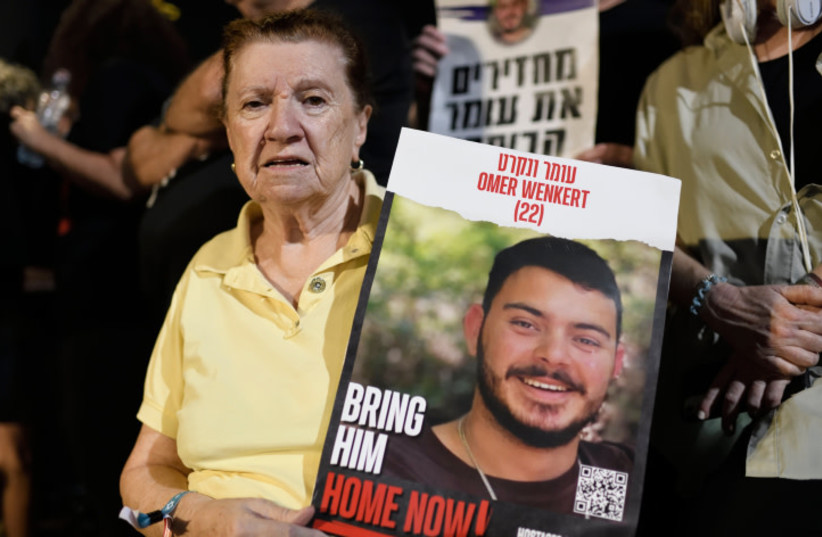Israel has estimated that many of the over 240 Hamas-held captives in Gaza are still alive, as it opposed any ceasefire without the release of all the hostages.
An Israeli diplomatic source said that the pressure of a ground campaign may press the Gaza-based terrorist group to make a deal.
“Initially nothing was seen in that direction,” the source said. Now, “we see something,” but “it hasn't matured yet.”
The source spoke as Israel is under international pressure for a ceasefire, with US Secretary of State Antony Blinken pushing it to at least accept a humanitarian “pause” in the fighting.
The source said that any ceasefire understanding would in fact be temporary, more akin to a pause, adding that this could only happen in exchange for the release of the hostages and amid a clear understanding that Israel would continue to “work to defeat Hamas.”

Qatar's foreign ministry said on Sunday that without a "period of calm" in Gaza, its mediators would not be able to secure the release of Israeli hostages held there.
The source clarified that all Israeli contacts with Qatar are managed by Mossad Chief David Barnea, together with the intelligence team of IDF Maj.-Gen. (Res.) Nitzan Alon and Shin Bet (Israel Security Agency) Chief Ronen Bar.
All efforts being made by former Mossad chief Yossi Cohen are being done under the auspices of Barnea, as Cohen does not have a separate role, the source said, adding that “parallel actions can complicate the situation.”
His only sole independent effort was at the start of the war when he delivered a message to Prime Minister Benjamin Netanyahu from Arab leaders, the source explained.
IDF may remain in Gaza
Looking toward the aftermath of the Gaza War, the source hinted that the IDF may remain in Gaza.
“I don't see a situation where Israel will not have supreme security responsibility in Gaza,” the source stated. Work must also be done to change the mindset of Palestinian society there.
“It is not enough to restore Gaza. It must be put through a process of de-Nazification,” the source added.
The source noted that the problem was not limited to Gaza but also included the West Bank.
“This culture [of wanting to kill Jews] still exists in the Palestinian Authority, the source said, warning during the conversation that the West Bank settlements were in danger of Hamas attacks.
A Hamas victory, therefore, is also not just important for Gaza, but also for the West Bank and for Israel’s northern border, the source said.
The scope and strength of a victory over Hamas, would help ensure the security of the evacuated communities along Israel’s northern border, the source stated.
The possibility of a similar infiltration by Hezbollah along Israel’s northern border has also decreased because the IDF had now invested more forces to fortify the area, the source said, adding that the military also changed its operational understanding of what must be done to protect that border.
Looking to the future, the source said that an Israeli-Saudi normalization deal, which had been under negotiation prior to the outbreak of the Gaza War on October 7, was still visible, but emphasizing that this is only if Israel defeats Hamas.
